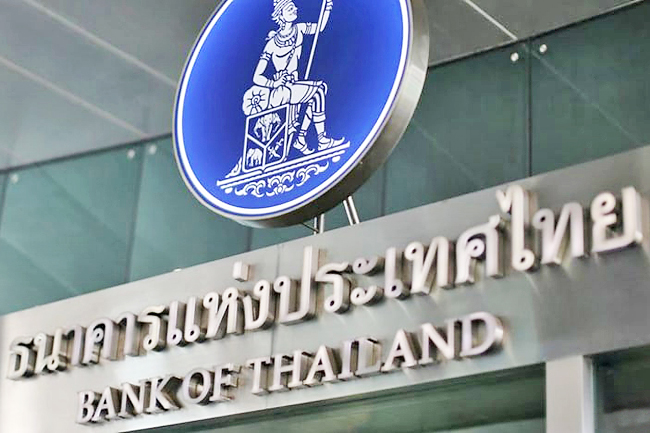BENGALURU (CNA) – Thailand’s central bank will wait for at least a year before raising interest rates from record lows to support the tourism-dependent economy hit hard by coronavirus-related travel restrictions, a poll found.
Economic growth in the country is yet to return to pre-pandemic levels and the recovery continues to be fragile due to an outbreak of the Omicron coronavirus variant that crippled the crucial tourism industry.
Although inflation breached the Bank of Thailand’s (BOT) target range of one to three per cent in January, it was expected to fall back within that range in the coming months, giving the central bank the space to maintain an accommodative stance as long as necessary to revive growth.
That comes despite multi-decade highs for inflation in many countries, including the United States (US), where the Federal Reserve is due to raise interest rates next month.
Past Fed tightening cycles led to capital outflows from less developed economies like Thailand, but analysts are not as concerned this time around.

Twenty-three economists in the February 1 to 4 poll unanimously predicted the BOT to hold its one-day repurchase rate at an historic low of 0.50 per cent at its meeting tomorrow and the rest of the year.
The central bank was expected to raise its key interest rate to 0.75 per cent in the second quarter of 2023, followed by another 25 basis points in the December quarter of next year.
“The Bank of Thailand’s interest rate lift-off would likely only take place in early 2023 when Thailand’s real GDP returns to pre-COVID levels, assuming inflation and impact from US interest rate normalisation remain manageable,” DBS economist Chua Han Teng said.
“Thailand’s diverging monetary policy with the US Federal Reserve could result in heightened capital flow volatility, but the BOT has more than adequate reserve buffers to deal with potential capital flow fluctuations and baht weakness.”
Indeed, the Thai baht was expected to be one of the best performers among emerging market currencies, rising nearly three per cent to THB32.07 baht/USD1 in a year, a separate poll showed.
Another survey of economists published last month showed inflation was expected to average 1.5 per cent this year and slip to 1.2 per cent in 2023. Thailand’s economy was expected to grow 3.9 per cent this year and 4.1 per cent in 2023.



